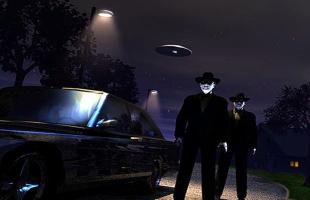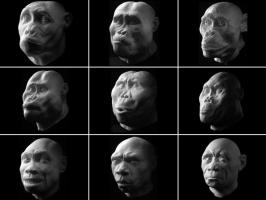Copy Link
Add to Bookmark
Report
State of unBeing 38

Living in such a state taTestaTesTaTe etats a hcus ni gniviL
of mind in which time sTATEsTAtEsTaTeStA emit hcihw ni dnim of
does not pass, space STateSTaTeSTaTeStAtE ecaps ,ssap ton seod
does not exist, and sTATeSt oFOfOfo dna ,tsixe ton seod
idea is not there. STatEst ofoFOFo .ereht ton si aedi
Stuck in a place staTEsT OfOFofo ecalp a ni kcutS
where movements TATeSTa foFofoF stnemevom erehw
are impossible fOFoFOf elbissopmi era
in all forms, UsOFofO ,smrof lla ni
physical and nbEifof dna lacisyhp
or mental - uNBeInO - latnem ro
your mind is UNbeinG si dnim rouy
focusing on a unBEING a no gnisucof
lone thing, or NBeINgu ro ,gniht enol
a lone nothing. bEinGUn .gnihton enol a
You are numb and EiNguNB dna bmun era ouY
unaware to events stneve ot erawanu
taking place - not -iSSuE- ton - ecalp gnikat
knowing how or what THiRTY-EiGHT tahw ro woh gniwonk
to think. You are in 06/30/97 ni era uoY .kniht ot
a state of unbeing.... ....gniebnu fo etats a
--SoB-SoB-SoB-SoB-SoB-SoB-SoB-SoB-SoB-SoB-SoB-SoB-SoB-SoB-SoB-SoB-SoB-SoB-SoB--
CONTENTS OF THiS iSSUE
=----------------------=
EDiTORiAL Kilgore Trout
LETTERS TO THE EDITOR
STAFF LiSTiNGS
[=- ARTiCLES -=]
CHANGiNG OF THE GUARD:
PREDiCTiONS OF HONG KONG'S HANDOVER The Super Realist
REGARDiNG A BOMBiNG TRiAL I Wish My Name Were Nathan
[=- POETASTRiE -=]
BiRTH OF A THOUGHT The Super Realist
THE ViEW TO WEAVE The Super Realist
[=- FiCTiON -=]
THE UNQUESTiONABLE ANSWER I Wish My Name Were Nathan
THE FLiES Crux Ansata
--SoB-SoB-SoB-SoB-SoB-SoB-SoB-SoB-SoB-SoB-SoB-SoB-SoB-SoB-SoB-SoB-SoB-SoB-SoB--
EDiTORiAL
by Kilgore Trout
Welcome to the fat-free, ultra-light version of State of unBeing. We've
toned down for the summer season to fit into those tight little thong bikinis,
and boy, do we look hot! Where's that tanning oil?
[Hmm? What was that, Nathan? I should tell the truth? But I *AM*.
I've always said that I want to be a waif model with that chic heroin
look. Whaddya mean, that's a crock? Now you listen here. I spent a
whole month with my finger down my throat to look like this, and I'm not
gonna give it up!]
Of course, most people on the beach don't like to see a bunch of guys in
bikinis (many with facial hair, no less) prancing around in the sand. Never
mind that there ARE women among our ranks (some with blue hair, no less).
[What? You can't be serious! I would NEVER do something like that.
Yeah, like I'd forget to backup all of my mail. Sure, Nathan.
Sometimes I wonder if you aren't going crazy.]
I really don't like the beach, but I guess if I could wear a frilly
two-piece (one that would be both sexy AND something I could swim in), I
wouldn't mind it too much. I think the last time I was at a beach was in
1995, but then I only wore swimming trunks.
[Get your damn hands away from the keyboard. I'm telling it like it is.
I wouldn't lie to my readers. Huh? Oh, they can see THIS? Um, oops.]
Okay. I confess. We're not anywhere near a beach, and we're not
planning on going. This week I decided to reinstall my Linux box, and while I
thought I had backed up everything, it is now obvious that I didn't.
Stupid, stupid me.
It's not the end of the world, really. I got rid of a bunch of crap,
everything's really clean, and I discovered that I still like Slackware better
than Red Hat. Unfortunately, I lost my mailbox which held about 1,300
messages. Most of that were from mailing lists, but there were quite a few
submissions.
So, if you sent me something between now and the last issue for
publication and it didn't make it in, I'd like to ask you to send it again.
It's kinda funny in a way, though. The people who waited till the last minute
got their stuff put in, while the early birds didn't make it. Strange.
Not to say that this issue is bad. It's um, really to the point. It's
like a good introductory issue to grab people. It's not too huge to scare
people away, but it's still got that same ole sumbitch flavor we like to
create at the Apocalypse Culture offices. Once again, I apologize for being a
dumbass, and I promise it will never, ever happen again.
Until next month...
[Okay, are you happy? Yes, I know. I know. I'll make sure I'm extra
careful next time. No, you don't have to come over and hold my hand the
next time I do a Linux install. I'm a big boy, really. Well, at least
an editor...]
--SoB-SoB-SoB-SoB-SoB-SoB-SoB-SoB-SoB-SoB-SoB-SoB-SoB-SoB-SoB-SoB-SoB-SoB-SoB--
LETTERS TO THE EDITOR
From thebard
To: kilgore@sage.net
Subject: SoB mailing list
Please add me to the SoB mailing list... thanks!
andy.
[you're, uh, quite welcome. you know, it's hard for me to come up with witty
replies to letters that are as terse as yours. you gotta give me something
to work with, people!"
--SoB--
From: crackmonkey
To: kilgore@sage.net
Subject: ummm....
i really feel like you should title me the official sob groupie. please.
i know you really want to. or at least for this month again if you're
not ready for that kind of commitment. i'm a really good groupie; i'm
good at all sorts of groupie type things like.....well, it's your zine.
you should make up the official groupie type jobs.
-liz
[i thought the whole idea of groupies were that they constantly changed. i
don't know exactly what being an official SoB groupie would entail. i'm
almost afraid to imagine. still, i'll put it before a vote at the next SoB
meeting and see what comes up. you have, however, garnered the title for a
now-record TWO issues. congratulations. i think.]
--SoB-SoB-SoB-SoB-SoB-SoB-SoB-SoB-SoB-SoB-SoB-SoB-SoB-SoB-SoB-SoB-SoB-SoB-SoB--
STAFF LiSTiNG
EDiTOR
Kilgore Trout
CONTRiBUTORS
Crux Ansata
I Wish My Name Were Nathan
The Super Realist
GUESSED STARS
thebard
SoB GROUPiE
crackmonkey
THiNGS i FORGOT TO BACKUP WHEN i REiNSTALLED LiNUX
my mail inbox (duh, you'd think i woulda remembered /var/spool/mail/kilgore)
the SoB mailing list (IWMNWN had a copy, thank goddess)
my latest build of the slang library
lynx 2.7
emacs (not a bad thing, actually)
Xmines (a minesweeper clone for Xwindows)
a few mirrors of some text archives (just download those again)
Nethack 3.2 (oh well, i've turned to ADOM now for my latest addiction)
30 megs of interactive fiction games
a bunch of other stuff i probably won't remember until i really need it
--SoB-SoB-SoB-SoB-SoB-SoB-SoB-SoB-SoB-SoB-SoB-SoB-SoB-SoB-SoB-SoB-SoB-SoB-SoB--
[=- ARTiCLES -=]
--SoB-SoB-SoB-SoB-SoB-SoB-SoB-SoB-SoB-SoB-SoB-SoB-SoB-SoB-SoB-SoB-SoB-SoB-SoB--
CHANGiNG OF THE GUARD: PREDiCTiONS OF HONG KONG'S HANDOVER
by The Super Realist
At midnight, July 1, 1997, Hong Kong will be a British Colony no longer.
While many view the handover with excitement and a sense of celebration, many
voice concerns over the impending loss of basic human rights, the acceleration
of corruption, and the loss of democracy as Hong Kong is thrust into a
communistic rule. Many changes are planned to take place and no one is
exactly sure what is going to happen. But, what will China use hong Kong for?
Will China begin exacting a hardlined stance on immediate change, or will it
gradually introduce socialism into the growing capitalism of Hong Kong? Will
China abolish all human rights as granted under the current law of Hong Kong,
or will the Basic Law devised by Britain and China in 1984 be enough? Will
China absorb Hong Kong into its folds as just another province, or will Hong
Kong remain a separate entity in both government and people?
The first major change is the ousting of the Democratic Party, the most
popular political party in Hong Kong led by Martin Lee, from the current
legislature. Nineteen out of 60 legislators will be thrown out on July 1, to
be replaced by political puppets hand chosen by Beijing, not by the people of
Hong Kong. Those same political leaders of Beijing have made it virtually
impossible for the Democratic Party to hold any empowering slots of government
in the future by changing the electoral laws. To say that a democracy will
remain in Hong Kong is naive at best, since without a free election a
democracy isn't even in the ballpark.
With the ousting of the Democratic Party also comes a serious question on
human rights in Hong Kong. The world saw the basic tenets of China's stance
on human rights during the massacre of the students at Tiananmen Square on
June 4, 1989. A same situation may arise on July 1, as protesters built a
26-foot statue in Hong Kong's Victoria Park in tribute to those fallen on June
4, and plan to hold marches and vigils. City Hall of Hong Kong has rejected
the applications from Democratic leaders to display the statue, however those
rejections have been influenced by incoming leader, C.H. Tung, another puppet
of Beijing control. Even with the applications rejected, stated as contrary
to the celebratory spirit by government officials, the marches and protests
are planned to resume.
With the question of free speech already firmly planted in the minds of
Hong Kong's youth, more questions arise concerning other human rights. Hong
Kong has enjoyed many freedoms for 156 years with the reliability of their own
legal system developed on custom and precedent. Hong Kong is one of the few
places in Asia, and even the world over, where the rule of law is respected
and politics play no role in handing out justice. The opposite is true with
China's legal system. China's legal system has basically been controlled by
the political forces in power. China's legal system has no checks and balance
of a proven court system, more like the ambiguity of the political leaders to
dole whatever justice they see fit in order to remain in control. Chinese
people have consistently been put into prison for their political or religious
beliefs, much like the early years of the communist Soviet Union.
Even the Basic Law is under fire from the people of Hong Kong. The Basic
Law is the skeletal constitution that China and Britain formed in 1984 to help
assist Hong Kong for the next 50 years of Beijing control. Over 25 laws were
in conflict between the Basic Law and current laws of Hong Kong. Beijing has
ordered that those Hong Kong laws be changed or sacked all together. Even the
Hong Kong Bill of Rights, a series of legal measures enacted by the British
Government to protect citizens from another Tiananmen Square massacre, is to
be repealed. Rights to assembly are to be slashed. Rights to political
affiliations outside Hong Kong or China are to be slashed. Rights to habeas
corpus are to be slashed.
However, I predict there won't be any widespread detention or execution
of the Hong Kong people by the Chinese any time soon, even if there is a mass
protesting by Democratic followers. The current political leader, C.H. Tung,
although a puppet for Beijing, is from Hong Kong as are all political leaders
who are to take over the legislature. They were brought in more as a go
between for Beijing's socialistic values and Hong Kong's capitalistic
movement. The world is taking a very keen interest in this handover as well,
especially Taiwan. China wants to lure Taiwan back to the "family" because of
its recent economic power. If China makes the fatal mistake of sacrificing
Hong Kong in order to keep the political structure intact, Taiwan will resist
reunification with all resources available. Many people think that China
would be willing to go through drastic measures such as June 4, 1989, but I
think Beijing knows that very influential military enemies are watching.
What will China do with Hong Kong once it has it back in the "family?"
Hong Kong's most important resource is its economy. Hong Kong had a thriving
economic structure before the value of human rights were introduced by the
British. Capitalism and democracy do not necessarily go hand in hand. So
far, the impending transition of democratic colony to communistic satellite
have had little effects on the economy of Hong Kong, both internal and foreign
money. I think that Beijing will continue to allow Hong Kong the economic
freedom it shared with British rule. China itself has an isolationist view of
economy; however, Hong Kong has never known that for itself. For China to
deprive Hong Kong of what it does best is to make Hong Kong basically
worthless. Whether this means giving Hong Kong more social freedoms than
Beijing currently wants, or the state to take over the economy completely, I
can't say. In my opinion, Beijing will lay off the iron grip of communism for
Hong Kong so that the entire motherland may reap the rewards.
These are the predictions I make for Hong Kong's handover on July 1,
1997. I think that nothing earth shattering will occur for at least 6 months,
maybe longer. I see the political structure of Hong Kong changing to reflect
the communist heritage of the motherland, but I also see the Democratic
leaders doing even more to secure their own footholds in the government. I1m
sure that trade will remain relatively the same for Hong Kong, otherwise why
institute C.H. Tung, a multimillionaire tycoon, as the political leader if
China was to crush its economic importance? After the student massacre in
Tiananmen Square, all eyes will be on China, and Beijing should have the
political know-how to step lightly.
--SoB-SoB-SoB-SoB-SoB-SoB-SoB-SoB-SoB-SoB-SoB-SoB-SoB-SoB-SoB-SoB-SoB-SoB-SoB--
Tsze-kung asked, saying, "Is there one word which may serve as a rule of
practice for all one's life?" The Master said, "Is not Reciprocity such
a word? What you do not want done to yourself, do not do to others."
-- Confucius
--SoB-SoB-SoB-SoB-SoB-SoB-SoB-SoB-SoB-SoB-SoB-SoB-SoB-SoB-SoB-SoB-SoB-SoB-SoB--
REGARDING A BOMBING TRIAL
by I Wish My Name Were Nathan
On April 19, 1995, a Ryder truck bomb exploded at the Alfred P. Murrah
Federal Building in Oklahoma City, destroying half of the building and 168 of
the people inside. Hundreds more were injured. What made the crime seem
particularly heinous was the fact that the first floor of the Murrah building
contained a daycare; many of those killed were small children. What seemed
even more heinous was the lack of remorse of the lead conspirator, Timothy
McVeigh. In a month-long trial, jurors convicted him and sentenced him to
death, riding the momentum of the 1995 federal anti-terrorism act, which
specifically called for the death penalty in such cases. At this writing, the
co-conspirator Terry Nichols has not gone to trial. McVeigh still awaits
appeals, which may take years to process.
During the trial, McVeigh's defense attorney Stephen Jones first
proposed the theory that another unidentified bomber may have rented the
Ryder truck and parked it under the Murrah building. But during the
sentencing phase, he admitted that McVeigh had committed the crime but only
out of patriotism, acting in a "wartime situation" in reaction to the 1993
government siege on the Branch Davidian group in Waco.
"It is a political crime. It is an ideological crime. He is not a
demon, though surely his act was demonic," Jones said in his closing
statement, hoping to convince the jury to hand down a life sentence without
parole, in an appeal to McVeigh's humanity. The jury appeared contemptuous
of the appeal. And the survivors had long since renounced McVeigh's claim
to being human.
- 1 -
"The very emphasis of the commandment: Thou shalt not kill, makes it
certain that we are descended from an endlessly long chain of generations
of murderers, whose love of murder was in their blood as it is perhaps
also in ours."
-- Sigmund Freud
I think the jury made a bad decision. In condemning McVeigh to death,
they have solved no problems. In fact, more should arise from their decision.
At times I can be a hard-hearted bastard, and in the recent months, I
have been. In order to remain objective, I've had to shut out of my mind the
anguish of the survivors and their families, popping up like weeds to offer
their heartfelt emotional stories of watching loved ones being pulled from the
wreckage or dying in hospitals. I've had to ignore the ramifications of newly
orphaned children, newly childless parents, all the blood and tears and lives
wrecked, to consider this case.
The prosecution and the jury did not make this effort.
I condemn myopic vision and selfishness. Do any of the survivors believe
that this verdict really matters? Do any of them believe that this provides
"closure?"
"Closure" is a mathematical idea describing an operator that, when
applied to any two members of a finite group, will generate another element of
that group. More commonly, "closure" means the completion of a discrete
series of events.
(1) Mad bomber parks a truck bomb outside building.
(2) Our children / parents / friends / coworkers killed in explosion.
(3) We kill mad bomber.
(4) Justice is served.
Is this a discrete series of events? Does it end in completion?
Considered this myopically, it is. But in the larger picture, is anything
nearly this clear-cut? This is simply the use of murder as revenge.
Christians love to quote the phrase "an eye for an eye" as a reason.
"An eye for an eye" appears in Leviticus 24:19-21 thusly: "If anyone
injures his neighbor, whatever he has done must be done to him: [20] fracture
for fracture, eye for eye, tooth for tooth. As he has injured the other, so
he is to be injured. [21] Whoever kills an animal must make restitution, but
whoever kills a man must be put to death."
Yahweh seems quite vengeful here, but I advise Christians to note that
this passage doesn't appear in the Gideon Bible or the New Testament. Jesus
advised his followers to love one's neighbor as oneself. Are these pious
survivors blessing God for the jury's decision honestly going to accept the
fact that the hatred they feel toward McVeigh is also in a way hatred of
themselves?
Survivors often feel guilty and wish they could have died in place of
their loved one. Is this God-blessing of murder for murder just self-hatred?
Nietzsche said that what doesn't kill you makes you stronger. Wouldn't it
make the survivor stronger to forgive McVeigh?
- 2 -
"A nation may lose its liberties in a day and not miss them in a
century."
-- Baron de Montesquieu
"The majority of us are for free speech only when it deals with those
subjects concerning which we have no intense convictions."
-- Edmund B. Chafee
"There is no nonsense so arrant that it cannot be made the creed of the
vast majority by adequate governmental action."
-- Bertrand Russell
Some Americans interviewed during the McVeigh trial said they would favor
the death penalty over "having to put up with" McVeigh for the rest of his
life. Those interviewed did not enjoy the possibility that McVeigh might turn
into a morbid cult hero like Charles Manson. Some even abhorred the thought
that McVeigh would write books about his philosophy and infect others' minds
with his rhetoric.
What does it mean when a supposedly free country starts to believe that
killing off a dissident is more convenient than enduring his ideas?
This verdict is bad for this country, because it reinforces a growing
suspicion and hatred toward unpopular politics. Stephen Jones ended his
defense by emphasizing McVeigh's political ideology, that McVeigh was a
patriot who wanted to avenge the deaths in Waco and avert further tyranny.
To many, this sounds like reactionary right-wing extremism. Indeed, to many
who do not see the reasons for this ideology, it sounds ridiculous and
dangerous.
But it is not ideology that is dangerous, it is action. Ideas are not
dangerous -- people are. Unfortunately, this verdict reinforces the invalid
belief that to call oneself a "patriot" and accuse the government of "tyranny"
is to be a terrorist. I am not denying that in McVeigh we found both the
ideas and the actions, but what this verdict overlooks is the fact that the
ideas can exist in peace.
Dissent is probably the most astounding right a government has ever
granted its citizens, given to us in the First Amendment of the Bill of
Rights. Consider that! Dissent was considered treason in Britain and was
punishable by death. In our country, this is treason (Article Three, Section
3): "Treason against the United States, shall consist only in levying War
against them, or in adhering to their Enemies, giving them Aid and
Comfort...."
Do you see the difference between terrorism and treason? Treason is
considered an act of war, such as selling weapons or trading secrets with an
aggressor government. Therefore, a treasoner is identified by actively
supporting a government or group that is engaged in war with the United
States.
Terrorism is hardly as obvious. Until recently, it was considered to be
religiously- or politically-motivated crime intended to create terror.
Certainly McVeigh is a terrorist. But, riding on the heels of the New York
Trade Center bombing, committed by foreigners, and the Oklahoma City bombing,
the only domestic terrorist act in United States history, Congress passed an
anti-terrorism bill, named "the Death Penalty Enforcement and Anti-Terrorism
Act," which has broadened the scope of terrorism to an alarming degree.
Being undefined, "terrorism" has now grown to include any number of
activities. Furtively, "terrorism" has replaced "treason" in the
Constitution. This anti-terrorism bill expanded the definition of
"terrorism" to include supporting foreign groups in their legal activities
-- by naming these groups "terrorist organizations." Knowingly providing
support to terrorist groups is now illegal, whoever these terrorist groups may
be. For example, subscribing to Irish Republican Army literature can now be
considered terrorism, even though Ireland is not at war with the United
States. Is buying literature as devious as intentionally terrorizing people?
President Clinton showed ethical weakness by signing the sweeping bill
that has also expanded the government's wiretapping privileges and allowed
it to use secret evidence in deportation proceedings and conduct counter-
terrorism investigations without a court order under "good faith." Note that
almost any violent crime can now be considered "terrorist." The bill is
being challenged by the ACLU.
The short-sighted passage of the 1995 anti-terrorism bill demonstrates a
tendency toward the tyranny of the majority. I do not pretend to be objective
in issues dealing with our government, because I know I am in a minority, if
only by my beliefs. And being in the minority is precisely the reason why I
care about these laws. It is self-interest that motivates me. Consider:
against whom are punitive laws passed, if not a minority? It is easy for the
majority to accept the criminalization of right-wing ideologies, to applaud
illegal searches and arrests of "militia members," because the majority thinks
it will always be innocent. What they don't realize is that "majorities" and
"minorities" shift, depending only on number, not on the validity of their
beliefs.
- 3 -
"It is by universal misunderstanding that all agree. For if, by ill
luck, people understood each other, they would never agree."
-- Charles Baudelaire
"The most dangerous person in the world is an ideologue with a machine
gun."
-- anonymous
I think Timothy McVeigh made a bad decision. In conspiring to bomb the
Murrah Federal Building in revenge for the siege at Waco, he solved no
problems. In fact, more should arise from his decision.
At times I have been a hard-hearted bastard, and in recent years, I've
had to be. In order to remain objective, I've had to reconsider allegations
of gun-running, child abuse, and methamphetamine production among the Branch
Davidian group, and who shot first in the confrontation with the ATF. I've
had to stop myself from thinking about the carbon sulfide vomit-inducing
teargas that had been pumped into the building for days while ATF
loudspeakers announced, "this is not an assault." I've had to shut out of
my mind images of a burning building, in 86 people died. I've had to shut
out of my mind thermophotography showing SWAT machine guns being emptied
into the only available exit during that fire.
I've had to ignore the belief that these people set the fire themselves
because they were "suicidal religious zealots."
But at the same time, I've had to repress my rage and any ideas about
exacting violent revenge upon the government. From some perspectives, the ATF
was clearly at fault. From others, the ATF was following orders under false
leads. Can any act of revenge solve that or change what happened? Could
anything make it clear why I'd be committing that act, and could anything make
it moral to do so? I've had to resist my own emotional urges to consider the
consequences of anything I might do.
McVeigh and Nichols did not make this effort.
First of all, the political landscape was ripe for a lynching. The
anti-terrorism bill was being deliberated in Congress at the time of the
bombing, hardly the time to make a terrorist statement. Aligning the date of
the bombing with the anniversary of the Waco inferno was short-sighted as
well, for the majority of the public have no such anti-government feelings
about Waco, believing the Davidians were in the wrong.
Did McVeigh assume that many others would agree with his need for and his
method of exacting revenge? I must admit that I don't even know if McVeigh
thought anyone would applaud his actions on a wide scale, for interviewing
privileges have been restricted regarding the matter. His lack of remorse and
stony expression during the trial might indicate that he put his ideals above
his actions. If so, he enjoyed the same myopia as the victims.
I disagree with McVeigh's actions. Setting off a bomb that murders 168
people in revenge for other murders is stupid. One crime does not eliminate
another crime. Crime is additive.
McVeigh tried to send his message, anger of government tyranny, in the
form of another message, the reckless bombing of a government building. Two
messages were expressed here, the louder of which ironically annihilated the
more important one. The jurors who convicted and sentenced McVeigh were
united in asking the question: "Why?" The members of the jury were obviously
intelligent, middle-of-the-road Americans. They had not heard or taken
seriously the idea that the government was at fault at Waco. The defense
argument that McVeigh was angered over the siege did not register with the
jurors. But the bomb did. I now call to the stand, the patron saint of lost
causes.
Dissenting ideas and ideals are good for a free society; they indicate
that the citizens are thinking. But, as any activist will say, ideas are
nothing without action. An idea that stays isolated in the mind or spread
conversatively among one's friends will not get anything done.
Speaking publicly is an action. Organizing a militia is an action.
Running for political office is an action. Setting off a bomb is an action.
An idea may be enacted in infinite ways, and this is where the trouble occurs.
Once an idea is enacted, it exists outside the mind that conceived it. It has
the capability to help or harm the physical world, other people, and others'
ideas. Actions are of the utmost importance.
Actions are, for the most part, the only objective data a person can
consider. Although numerous witnesses may skew the details of a traffic
accident, they will agree that the cars collided and that something did
happen. But it is nearly impossible to get into someone's mind and consider
their reasons. Even explicitly spelling out one's reasons may not be taken
seriously. An impartial jury must consider actions, must consider the
breaking of laws, the harming of people and property. Only secondarily may
they consider mindset, reasons, emotions, intelligence.
If McVeigh intended that the Oklahoma City bombing rally Americans to
action, he certainly succeeded. But his message was lost in the rubble.
Timothy McVeigh made a bad decision in his method of spreading the word. A
good reason does not justify murder.
------------------------------------
During the course of this essay, you will notice I have assumed that
McVeigh did bomb the Murrah building, that Nichols was an accomplice, and that
the siege at Waco really was McVeigh's reason for the bombing. I was not
conducting a trial here; I was conducting an essay. Please forgive my
convenient assumptions.
--SoB-SoB-SoB-SoB-SoB-SoB-SoB-SoB-SoB-SoB-SoB-SoB-SoB-SoB-SoB-SoB-SoB-SoB-SoB--
[=- POETASTRiE -=]
"The poets? They stink. They write badly. They're idiots you see, because
the strong people don't write poetry.... They become hitmen for the Mafia.
The good people do the serious jobs."
--Charles Bukowski
--SoB-SoB-SoB-SoB-SoB-SoB-SoB-SoB-SoB-SoB-SoB-SoB-SoB-SoB-SoB-SoB-SoB-SoB-SoB--
BiRTH OF A THOUGHT
by The Super Realist
The mind flutters; pirouetting, tangling into an unconscious web. Thoughts lie
on strands separating awake and dreaming. The strands seem to alter planer
sides of reasoning, shrinking, stretching, elongating, widening alternatively.
Noise turning the strand around completely circular to appear in the opposite
side of the spectrum; reversing in polarity and substance, then snapping back
into substance. What substance can thought posses? Maybe it's a trick of the
light or too much heroin? Maybe it's nothing at all; a naked singularity
clothed in passionate throws of surpassing nakedness. Arms glimmering in
translucent trancendance, thought embraces consciousness in a grip of prenatal
awkwardness. Thought and strand canonize themselves, fusing into twins,
fracturing into awareness. Embriotic fluids of motion create, causing the
twins of thought and strand to knock against the womb. The tone the same deep
fleshy tone of the reasoning in which the womb was made. Pausing, reason
begins its breathing exercises of imaginative birth. The knock at the womb
comes heavier and with a sense of real urgency, wanting, longing, of waiting
to be born, feel the agony of adolescence, the futility of death. Then,
stepping between the pools of consciousness and existentialism, reason's water
breaks. Creativity floods the floor in appallingly wet structured format. The
dogs of senses and logic lap the afterbirth into their stomachs to be digested
with science, time, feasibility. Creativity pains reason, as holy water would
pain a recent sinner. The two unite as one, contracting and expanding, filling
the boots with amniotic fluids. Though chokes the strand of consciousness with
its umbilical cord, craving independence and life of its own. Tunneling
through abstraction, thought makes its way down the dark damp fleshy door of
the world. Light brazens its eyes and thought becomes aware that it is born.
The world cries.
--SoB-SoB-SoB-SoB-SoB-SoB-SoB-SoB-SoB-SoB-SoB-SoB-SoB-SoB-SoB-SoB-SoB-SoB-SoB--
"I had a shot of morphine up here somewhere," he says, pointing to the
top of his shoulder near his neck, "from my bypass operation. [The
nurse] said, 'This is morphine.' And I said, 'Fine!' " Burroughs drags
out the word in a sigh of bliss. He closes his eyes in an expression of
rapt anticipation. "Shoot it in, my dear, shoot it in." I ask
Burroughs if the doctors and nurses at the hospital knew who he was.
"Certainly," he drawls. "The doctor wrote on my chart 'Give Mr.
Burroughs as much morphine as he wants.' "
-- from an interview with William S. Burroughs, 1992
--SoB-SoB-SoB-SoB-SoB-SoB-SoB-SoB-SoB-SoB-SoB-SoB-SoB-SoB-SoB-SoB-SoB-SoB-SoB--
THE ViEW TO WEAVE
by The Super Realist
The smog outside my window can't cloud the darkness in this vast hotel
room filled with lives and experiences and feelings
You wonder who died in the bed last year and then ask yourself was it worth
it? Did they have THE reason for it? Where are they now?
Are they still making long distance calls from the room phone... there's
gonna be charges to my account, I just know it
But the phone just sits there frozen and indifferent to the TV coughing
up the old spaghetti western
Clint Eastwood hides his eyes in shame for even thinking about entering
my hotel room
Not much gained with the sound off, all the better to hear the silence of
the phone whisper nothing to me from no one
How about if I just turn the TV off? Pull the plug and watching it
suffer no more? Make it as worn and frigid as the phone?
It's cold outside and there's no reason the TV should be better off than
me, but then I think, am I that bad off?
So I turn up the heat in my own purgatory, awaiting the inferno of apathy
and solitude; even Gideon had nothing to say to me
Talk is all they do now-a-days, and not just the politicians, seems
everything has been said, don't want to be a cliche
What happened to the religious fanatics of old? What happened to the
die-hard martyrs of the hardened faith? They all died
Maybe the ghosts of those Saints are in this room now with me, watching
over the wandering souls
And the dead sea of electronics in my room. I'd bury the phone, but I
don't think the manager would like that too much.
The watch on my arm drags me down with the luggage and the heart, it's
time to head out and forget the musings
I take the key that locks the memories out from the outside world and
locks the lives of all past patrons in
Will they be locked in my heart, too? I hope so, nothing worse than
dried soul and a thirst for sustenance
The smog outside my hotel room is clearing up, the lights are off and I
don't have anyone to call.
--SoB-SoB-SoB-SoB-SoB-SoB-SoB-SoB-SoB-SoB-SoB-SoB-SoB-SoB-SoB-SoB-SoB-SoB-SoB--
[=- FiCTiON -=]
--SoB-SoB-SoB-SoB-SoB-SoB-SoB-SoB-SoB-SoB-SoB-SoB-SoB-SoB-SoB-SoB-SoB-SoB-SoB--
THE UNQUESTiONABLE ANSWER
by I Wish My Name Were Nathan
Barney was a wandering buffoon but he knew science and math. Barney
wandered in and out of the intricacies of life with a dumb grin pasted on his
face and he didn't ask too many questions because science and math gave him
all the answers.
One day, Barney was struck by an odd question: "Why?"
This question was a new one for Barney. He had been taught not to ask
"where," "when," "who," "what," or "how," because science and math provided
all these answers. But the question "why?" threw him by surprise and caused
the dumb grin pasted on his face to twitch uncomfortably.
Barney recognized, for example, that gravity existed. He knew how it
worked, in the form of various physical interactions and mathematical
equations. If he took any two whats and placed them in space, they would
attract each other at a certain rate and eventually touch and then they
would bounce off each other and then attract each other again until they
rested touching in space. But Barney did not know how gravity existed. Or
much of anything else, for that matter.
He asked his professors "why?" and they answered: "Because it makes
sense. Nature is rational and follows laws." Barney asked: "Why are these
laws so?" And his professors shrugged. They said: "You'd be surprised how
often they change when you look too hard."
Barney was a wandering buffoon and one day he was accosted by a sage
dressed in blue tights, a skirt, and a frumpy sweater. The sage said, "You
won't find the answers in science and math. Look elsewhere." Barney was
intrigued by the woman's advice and looked elsewhere.
Barney didn't consider psychology and sociology and politics to be
sciences so he looked there. He learned general patterns that seemed able to
reasonably predict certain outcomes in specialized situations, and it was
interesting to him that people would act like this, but Barney didn't get a
good answer to his question.
He asked his professors "why?" and they answered: "People learn to act
like this from long series of rewards and punishments." Or, "Socialization
and enculturation program people to act like this." Or, "That's just the
way it works." Barney asked: "Why can people distinguish rewards and
punishments?" "Why do people accept outside authority when we're supposed
to be free?" and "Who says?" They shrugged their shoulders.
Barney was a wandering buffoon and one day he was attacked by a
well-meaning street-corner preacher, who said, "I don't know why, you don't
know why, only God knows why." And Barney asked, "So who's God, and why does
only he know?" And the preacher said, "You find out."
So Barney looked into religion and tried to find out from God why no one
knew why. God said, "Frankly, I don't know why either. I invented you people
hoping you could tell me something." Barney was becoming impatient. He
asked, "Why don't you know? You of all beings should know why." And God
shrugged and said, "Go away and get me some answers."
Barney was a wandering buffoon and he wasn't fazed by God's confusion,
so he kept on looking for answers. He came across some philosophy and found
out that philosophers were doubting their own existence and the validity of
any answers at all. One said soberly to Barney, "I don't think the question
'Why?' is logically defensible."
Barney was astounded by the lack of a good answer, the possibility that
an answer didn't exist, and the fact that so many people still asked the
question. He started to think. His grin went away and he became visibly
agitated, a situation caused by stress and the release of hormones inhibiting
the digestive process and causing ulcers due to existential angst.
A new question arose for Barney, one longer and therefore simpler to
answer. "Why do I want to know why?" Science couldn't explain it.
Psychology suggested he had been trained to wonder, but had no experiment to
verify this. Philosophy didn't want to touch such questions anymore.
Religion had various answers but Barney knew first-hand from God that God
wanted to know why itself.
But Barney soon found himself having another conversation with God,
triggered by strange fumes from the bathroom door and this time it sounded
different. This time God said, "I am Why. That is all you need to know.
Accept the answer: I am the reason Why, and your quest is over. Accept me as
your answer and you will be complete."
Barney was a wandering buffoon and he asked, "Why?"
"Because you asked?"
"Why do I ask?"
"Oral diarrhea? C'mon, if you have to ask, you'll never know. So stop
asking so many questions or else you'll become a complete imbecile."
That was his answer. Barney's insipid grin returned and he went on
living.
----------------------------------------------
HEY KIDS!
1. What do you think about "God's" answer? Was this something God would
actually say, or was Barney simply under the influence of drugs, or was *that*
a troll tossed in by the author to mislead people?
2. Should Barney keep asking questions? Will he continue to function if he
stops now -- what if everything changes tomorrow? Or is it maybe this *kind*
of question he shouldn't ask?
3. And finally, kids, here's a question you can't ask your parents to help
you with: How many pesky questions come from being self-aware?
ANSWERS
si dnim s'yenraB esuaceb ,yenraB ekil tsitneics a ot klat ton dluow doG .1
reven dluow doG .nataS yb dekcirt gnieb ylraelc si eH .doG ot desolc
fo ecneulfni eht rednu ylsuoivbo saw yenraB .enoyna tpecca yllanoitidnocnu
nevE .moorhtab sih ni gnikoms erew smuldooh emos taht anaujiram deew live eht
ot thgir yllarom eb llits dluow ti ",elahni" yllufesoprup t'ndid eh hguoht
.mih tserra
uoy yhw si sihT .snoitseuq ynam oot gniksa yb elbuort gnisuac si yenraB .2
eht rehcaet dekrowrevo ruoy sevig ti -- loohcs ni sdnah ruoy esiar ot evah
noitcnuf lliw yenraB .ksa ot tnaw thgim uoy revetahw revo otev fo rewop
ecnardnih a ylno era snoitseuq esuaceb ,snoitseuq gniksa tuohtiw yllanoitpecxe
ycarcomed ruo ni worromot egnahc lliw gnihtoN .dnim s'rekrow naciremA eht no
*yna* ksa ton dluohs yenraB .ti rof gniksa yllacificeps elpoep eht tuohtiw
.snoitseuq fo dnik
.meht fo llA .3
--SoB-SoB-SoB-SoB-SoB-SoB-SoB-SoB-SoB-SoB-SoB-SoB-SoB-SoB-SoB-SoB-SoB-SoB-SoB--
"No man of culture and intelligence can relish drinking in the company of
women. They distract by suggesting other, less cerebreal diversions,
and not one is capable of enjoying what all see only as a prelude to
seduction."
--Edward Lea, "Castle of Corruption"
--SoB-SoB-SoB-SoB-SoB-SoB-SoB-SoB-SoB-SoB-SoB-SoB-SoB-SoB-SoB-SoB-SoB-SoB-SoB--
THE FLiES
by Crux Ansata
"I have the irrational urge to celebrate," she told me. She didn't look
at me; her face was blank.
"You don't celebrate a temporary reprieve," I answered. "You only
celebrate a victory. A victory is permanent." I didn't look at her.
We both gazed at the screens, at the carnage.
"You celebrate a birthday," she told me. "One day: it comes and goes
and comes again. A cyclic thing that ends in death."
"No," I corrected her. "You don't celebrate the day. The day comes and
goes. You celebrate the year past, one more year, permanent and linear. One
more year of evading death."
"But you can't predict the future from the past," she quoted. "You don't
know they'll come back." "They" was vague, less painful. We both knew what
she meant.
"I'm predicting from reason, not experience. We can't kill them all.
They need only regroup."
"And if they don't?"
"Then something else will kill us." I would have snapped it at her, but
I was just too tired. "That is life. You fight, and if you win, you are
killed later. It is not a question of whether we are doomed. It's a question
of when."
There had been no contact with anyone outside our camp since not long
after the attack began. We barely managed to survive. The attack seemed
global and hopeless. For us. Even if half the world was as "lucky" as us --
allowed one more last day, one more last meal of whatever cans we could scrape
together -- we were no more than a mopping-up operation from oblivion.
I put my hand on her shoulder. She shook it off. I put it back. She
stepped away, snapped, "No." She was crying. I pretended not to see. We
stared outside. The light was fading.
We were fighters. It was instinct. We deserve no credit for valor or
fortitude. To struggle against overwhelming odds is not reasonable, but the
reason does not awaken until later.
There comes a point when you have to stop struggling. It is inhuman to
merely grow, consume, reproduce, like yeast. If you act on instinct,
constantly subhuman, you stop when you die. If you are rational, you stop
when you see you cannot win.
If you are honest, you know from the start you can never win.
So why do we struggle? Why were we fighters?
I crossed to her. She was leaning against the window, the screen by the
open glass. She flinched. I pretended not to see it and stood behind her.
"We can start again," she pleaded. I don't think it was me she was
trying to convince. "If something is broken, we fix it. We don't give up.
If we have hope, we might start again."
"Not everything can be fixed. Once something is destroyed, it is gone.
Forever. If I broke that window, it would stay broken. At one, unretractable
point in time, it goes from being a window to keep out the cold, a benefit to
our environment, to being a trap to cut our feet, a harm to our environment.
The window cannot be fixed."
"We could fix a window. You just get more glass."
"The window can be *replaced*; it cannot be fixed. The pain cannot be
healed."
The wind blew in our faces. Her tears dried against her face, silver
streaks on the gathering moonlight. Her hair flipped against my face. I
could smell her scent. If I could, I would have enjoyed it.
"So we replace the window. Do we let one setback stop us? Do we give
up? Stop trying?"
"And if someone comes and breaks the window tomorrow? And the next day?
There comes a point where it's stupid to fight. One, someday, must accept the
void."
She shivered. I put my arms around her, held her close, as we looked
into the trees. By now we'd seen so much we were not seeing at all. She
tried to get away. I tried not to notice.
"Come on," I told her. She knew what I meant. I tried to lead her to
the bed.
She turned in my arms to face me. I let her. "What's the point?" she
spat back at me. "It is fleeting. The little death, remember? The sneeze in
the loins. And then it is over."
"I know I am dead. Please, let me know I have lived. The little death
has a true resurrection. We can defeat it."
"No," she replied. "Not for hopelessness. Love is for those who still
have hope. Not for us." She speared me with her eyes. "It is blasphemy
without hope."
"What kind of hope can we have? To see the future as one flesh? From our
flesh? More lights, to be extinguished? To see our offspring, and know they
are doomed to die? To oblivion?" this was my answer -- to myself. My
scoffing of her hope. My answer to her was on my lips. She resisted, but one
can only resist so long before one must accept. She received, and answered,
my kiss.
When we struggle, it is not for love, not for hope. We fight by
instinct. It is the only way we can live.
Hopelessness, despair is human. We caressed until we reawakened the
animal.
Tomorrow is just another last day.
--SoB-SoB-SoB-SoB-SoB-SoB-SoB-SoB-SoB-SoB-SoB-SoB-SoB-SoB-SoB-SoB-SoB-SoB-SoB--
State of unBeing is copyrighted (c) 1997 by Kilgore Trout and Apocalypse
Culture Publications. All rights are reserved to cover, format, editorials,
and all incidental material. All individual items are copyrighted (c) 1997
by the individual author, unless otherwise stated. This file may be
disseminated without restriction for nonprofit purposes so long as it is
preserved complete and unmodified. Quotes and ideas not already in the
public domain may be freely used so long as due recognition is provided.
State of unBeing is available at the following places:
CYBERVERSE 512.255.5728 14.4
TEENAGE RiOt 418.833.4213 14.4 NUP: COSMIC_JOKE
THAT STUPID PLACE 215.985.0462 14.4
ftp to ftp.io.com /pub/SoB
World Wide Web http://www.io.com/~hagbard/sob.html
Submissions may also be sent to Kilgore Trout at <kilgore@sage.net>. The SoB
distribution list may also be joined by sending email to Kilgore Trout.
--SoB-SoB-SoB-SoB-SoB-SoB-SoB-SoB-SoB-SoB-SoB-SoB-SoB-SoB-SoB-SoB-SoB-SoB-SoB--




















